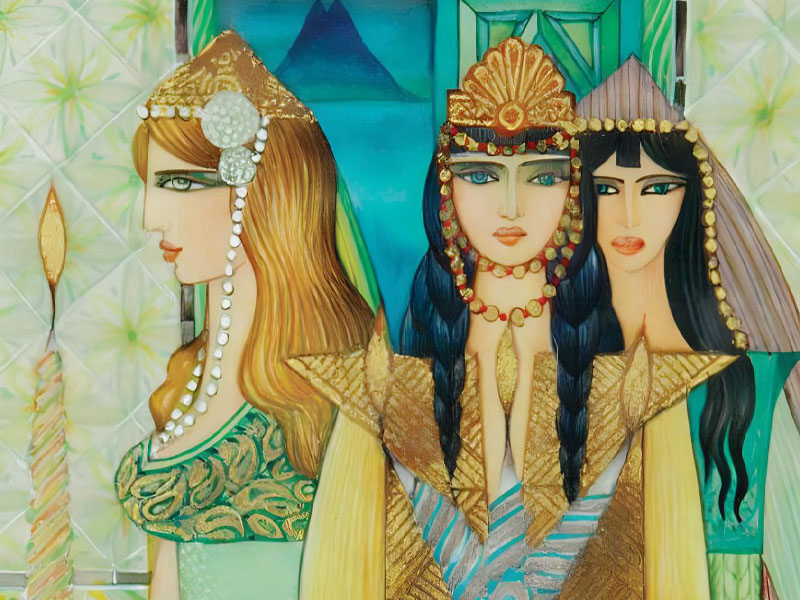Qarin (the Spiritual Twin) in Tunisian Folktales and Proverbs
Issue 51

Nurah Al Wasalati
University of Tunis
We chose to focus on the portrayal of the Qarin (spiritual twin) in Tunisian folktales and proverbs by reviewing the body of oral heritage to examine the evolution of the Tunisian family’s perception of the Qarin.
The Qarin is a phenomenon that has preoccupied families in Tunisia and Morocco. It falls under the humanities and cultural studies, and is related to tales and proverbs that describe the concept of the spiritual twin in physical, symbolic, social, cultural and other dimensions.
The phenomenon of the Qarin has remained unaccounted for and marginalised because researchers have lacked interest or because of the scarcity of relevant resources. However, the introduction of modern approaches in the humanities has provided an opportunity to overcome the limited content in historical documents and resources, especially when it comes to social history and cultural groups that are marginalised in official sources.
The various sources upon which the researcher can rely when studying the phenomenon of Qarin include official historical documents and other documents that are more useful when interpreting cultural heritage based on anthropology and other social sciences.
Many researchers have explained that a good understanding of the history of everyday life cannot be achieved without resorting to field research employing oral culture resources. In the absence of written documents, the oral text is evidence that leads to a greater understanding of the realities of life for marginalised or forgotten social groups.
Myths, tales, proverbs and their narratives refer to significant events and facts. Recent studies have shown that oral history helps to shed light on various aspects of everyday life, and that the value of oral narration lies not only in the depiction of events but in the relationship between the past and the present.
I decided to research depictions of the Qarin by exploring Tunisian folktales and proverbs and using new techniques that help us be more open to other civilisations.
Narratives constitute a living memory and history for all social groups, especially those that suffered from marginalisation and did not leave physical evidence of their presence in the past. Aspects that were marginalised include issues that relate to the family and to the Qarin’s position in the family. I focused on these aspects in my study.




































































